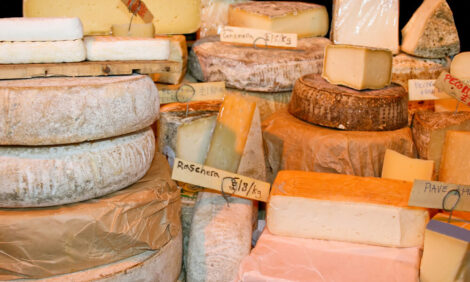



Disappointment As Un-Stunned Slaughter Continues
AUSTRALIA - Following the reform of live exports in Australia, the RSPCA and Animals Australia are profoundly disappointed that one of the cruellest aspects of live export – un-stunned slaughter – is set to continue. The independent review into live export, conducted by Bill Farmer, has failed to address the necessity of stunning animals unconscious prior to slaughter.
Executive Director of Animals Australia, Glenys Oogjes, and RSPCA Australia CEO, Heather Neil, said that the review was an missed opportunity to protect animals at the point of slaughter. The governemnt made no move towards a recommendation on stunning and has made no further commitment to require it.
“The fact that the number of Australian cattle that will be stunned in Indonesia is expected to grow from eight to around 90 per cent in just six months shows that it’s entirely possible to overcome any perceived barriers when the incentive is there and that markets can respond quickly if the supply of Australian animals depends on it," said Ms Neil.
“The Government needs to make it clear to the export industries that if they don’t announce targets for stunning, by country, and act themselves, they will make it a requirement,” she said.
The RSPCA stated that ultimately, it is incredibly disappointing that this review did not investigate options to phase out the trade.
Ms Neil continued: “The cruelty exposed in Indonesia was the last straw for many Australians who have run out of patience – the public overwhelmingly does not support live export."
“With Australian meat exports worth six times more than live exports there is a strong economic case for reform and planning to move away from the live trade would better position producers for the future.”
The RSPCA however welcomed the very positive step towards full traceability of all exported animals through a controlled supply chain.
“This is something welfare groups have been pushing for a number of years because while ever private sale is allowed there is no way to set standards for the treatment of Australian livestock," Ms Neil said.
“While it’s unacceptable that it has again taken the industry being under threat to see proper protections put in place, the RSPCA is pleased this is finally occurring."
Animals Australia said another issue of the review was its failure to address the obvious conflict of interest faced by veterinarians on board live export vessels - despite evidence of bullying and of vets who report negative findings being ostracised by the industry.
Ms Oogjes said: "The onboard veterinarian is the only government representative on the ship. The fact that they are chosen by the exporter and paid by the exporter is a clear conflict of interest which fails to give vets the independence and security they require to fulfil their duties. That this obvious failure in the system was not addressed is totally unacceptable and will continue to result in inaccurate reporting."
Whilst welcoming the implementation of assured supply chains, Animals Australia expressed its disappointed that the review and government failed to acknowledge the key role that it has played in forcing the government to transform the live trade.
"Animals Australia should never have been forced into the role of industry watchdog. Nine different investigations since 2003 revealed appalling cruelty and the willingness of the live trade to supply animals regardless of the cruelty they would face. The tragedy is that it has taken a further investigation by Animals Australia and some of the most appalling cruelty ever documented in Indonesia, to force action to be taken," Ms Oogjes said.
"Even if all of the recommendations from this review are successfully implemented, the live trade will remain completely unacceptable to the vast majority of the community. The recommendations will not prevent the suffering and deaths of our animals at sea – nor the terrible cruelty inherent to slaughtering animals whilst fully conscious," concluded Ms Oogjes.
Further Reading
| |
- | Go to our previous news item on this story by clicking here. |
TheCattleSite News Desk


